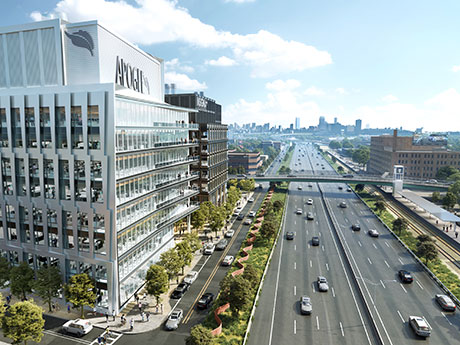BOSTON — Berkeley Investments has received approval from the Boston Planning & Development Agency to move forward with development of its 176 Lincoln mixed-use project in Boston’s Allston neighborhood. Plans call for Class A lab and R&D space, offices and apartment units.
Designed by CBT, 176 Lincoln will be built on a five-acre site with two acres of landscaped open space. The two main commercial buildings will include 720,000 square feet of lab, R&D and office space. The project will also include onsite housing, including 252 apartment units with 10 live-work units for artists.
The project will be situated within immediate proximity to Harvard’s recently completed Paulson School of Engineering and Applied Sciences, the Harvard Business School and the recent expansion of Harvard academic and cultural facilities such as the Harvard Innovation Labs. The expanding Harvard presence in Allston is establishing a new cluster for innovation and research in greater Boston, according to Berkeley.
“With its location adjacent to Harvard’s growing Allston campus and its introduction of state-of-the-art, Class A lab space, 176 Lincoln will be an important addition to the rapidly growing life sciences, medical, academic research and corporate corridor stretching through Boston and into Cambridge,” says Young Park, president of Berkeley.
As a transit-oriented development, 176 Lincoln aims to attract a highly educated regional workforce with walkable proximity to the MBTA Boston Landing train stop, as well as convenient access to the Massachusetts Turnpike (I-90) Allston interchange. In addition, the City of Boston and the Commonwealth of Massachusetts are actively planning a major highway/multi-modal transportation project along the turnpike that will transform the area formerly used as a rail yard and increase public transit options while opening over 100 acres of land for future development.
Berkeley expects the 176 Lincoln project will achieve LEED Gold certification and is designing it as a 100 percent electrical residential building, resulting in a 90 percent reduction in fossil fuel use. The developer is also aiming to achieve Passive House certification. Passive House buildings require very little energy to achieve a comfortable temperature year-round.
Berkeley, a full-service real estate investment and development firm based in Boston, expects to break ground on the property in 2024 and complete construction in 2028.
— Kristin Harlow


